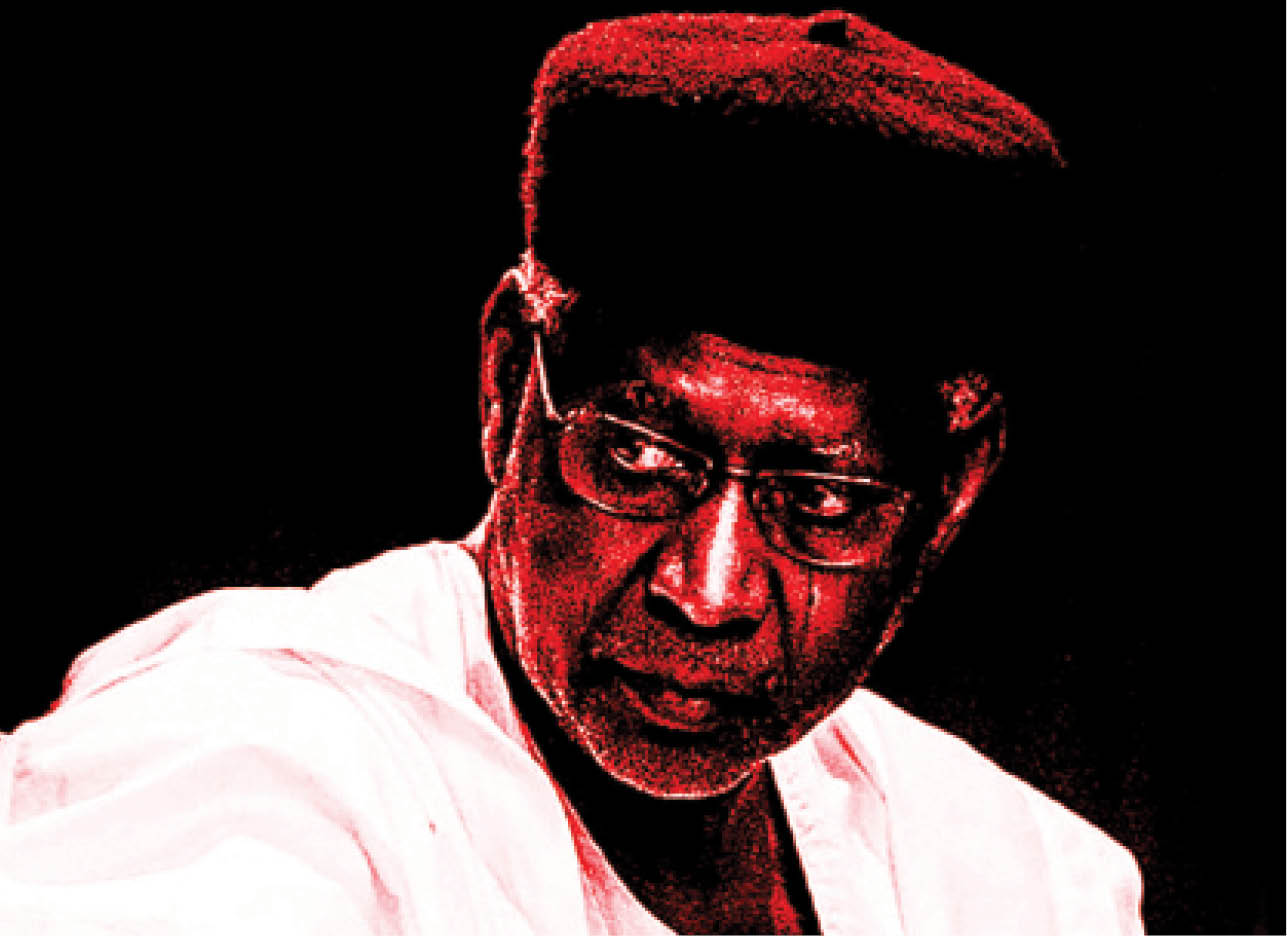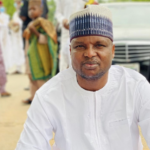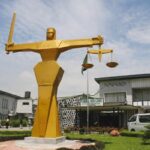A brief history of Nigeria’s abusive relationship with the powerful
That Abba Kyari is dead is no longer news. Neither is it news that his death has triggered the usual Nigerian reaction to the passing of powerful men in the country—a ying-yang of empathy and elation.
Kyari’s death has been occasioned by social media comments celebrating his demise, a trend that began when he tested positive for coronavirus on March 23.
As probably the most powerful man in President Buhari’s government, Kyari has been a lightning rod for the resentment many Nigerians feel for a government they believe, rightly or otherwise, has failed them in many ways. These insensitive comments have been countered by those calling for empathy for the deceased and his family. The result has been ethnic-tinted bitter and divisive arguments between those calling for Kyari to enjoy at least the basic empathy that the dead and their relatives deserve, and those who, because of their hatred for what they think he represents believe he is not entitled to.
The tradition of celebrating deaths of the powerful has a long history in Nigeria. In 1966, the gruesome murders of Prime Minister Abubakar Tafawa Balewa, Sir Ahmadu Bello, Samuel Akintola and the other victims of the January 15 coup was met with street parades and banner waving in some quarters. Celebratory songs were written and one particular inciting one became a hit that the Ironsi government had to ban it. The same scenes played out in July of that year, Gen. Thomas Ironsi himself along with dozens of officers were murdered in the counter coup. The 1976 assassination of Gen. Murtala Mohammed was also received in some quarters with joyousness, especially by the many civil servants that the Murtala administration had retrenched and people who suffered at the hands of Gen. Mohammed’s notorious 2 Division during the civil war.
The same scenes would play out in 1998 when Gen. Sani Abacha died after five years of iron-fist rule as Head of State with impromptu wild street parties in some cities of the country while in others, the thick mists of mourning prevailed. Even the self-effacing Umaru Yar’adua suffered the same fate after his death in May 2010, maybe to a lesser degree. Many who felt that his election was the most fraudulent in the country’s history barely stopped short of throwing parties.
Now Abba Kyari. A man who made no promises to Nigerians, had no compact with them as he did not seek any elective office and was unlike the others, a political appointee of a president who invested absolute trust in him.
Understanding the nature of this perverted behaviour of celebrating the deaths of powerful men, and on rare occasions women, will require understanding the relationship between Nigerians and their leaders, and vice versa.
This country has always been a country of weak institutions and all too powerful individuals. So powerful are these individuals they become and are perceived as not humans but as the institutions that have failed the country, stifled its potentials, frustrated its citizens and smashed their hopes. These men become one with power and their families and relatives are seen as mere appendages of these oppressive institutions. Sadly, most times, the overzealous conduct of family members of the powerful often give credence to these claims.
So when this powerful individuals die, it is not often remembered that a father, a son, a husband had died but rather an oppressive, corrupt and dysfunctional institution has fallen. Or maybe sometimes some people just don’t care.
It doesn’t help that when these men get into office and wield all the powers that make the people they are sworn to serve resent them so much, they become distant, inaccessible, disconnected from the realities of the average Nigerian and their toils and losses. They drive policies perceived as inhumane, policies they sometimes back with shockingly callous utterances. In this process, they are often deemed to have lost their humanity.
A twitter user, @DoubleEph who said he was until recently a vocal critic of Abba Kyari, last night shared a thread about his encounter with the late CoS. He said he received a call from an unknown number sometime in December.
“This is Abba Kyari. I’ll like to meet you and show you I’m not a monster.”
They met in Cambridge a few weeks later, exchanged the gift of books, had conversations over tea and carried on exchanging correspondences and messages up until Mr. Kyari’s COVID-19 diagnosis.
When Kyari’s death was announced, that twitter user said he was deeply saddened by the loss and shared the story of this encounter with Mr. Kyari because he too realized that most people did not know Abba Kyari the human, but Abba Kyari the institution they love to loath.
In his taciturn way, that is what Kyari had become in Buhari’s government. He wielded powers perhaps akin to Major Hamza al-Mustapha’s during the Abacha regime. He was shielded by the president from accusations of corruption and manipulation by both the First Lady and the National Security Adviser. He had been described as a loyalist to the president, a competent administrator and I am sure his family would speak glowingly of his qualities as a father and an individual. Somewhere between the margins of these character profiles, the image of the real Abba Kyari lay. Not many people, like @DoubleEph, would have the chance to see him as a man, especially since Kyari himself enjoyed the shadows.
Five years in power, not as an elected official but as a powerful political appointee, yet not nearly enough is known of Mr. Kyari.
Since news of his death broke, journalists have been scrambling to ascertain his actual year of birth, and there is no public record immediately available of his education or his life before 1980.
He had managed successfully to keep his family life away from the public eye. The photo that emerged eventually of Mr. Kyari, his wife and their four children now seemed to possess a magical quality—a simple family portrait of a smiling, content man, his smiling wife, both flanked on each side by their two daughters with their two sons standing behind the couple, all smiling. A family man. Sadly, that is not the Abba Kyari most Nigerians know.
If Kyari’s death demonstrates anything, other than the tragedy that it is, and the sad state of our health care system, it is the fact that Nigerians and their leaders, elected or otherwise, have always been in a viciously abusive relationship.
Where the populace feels that the death of ordinary Nigerians in terrorist attacks, in avoidable accidents and explosions such as the March 15 incident in Lagos should resonate with the leadership beyond the usual automated “condemnation” and “regrets,” a negligence some insensitive Nigerians often reciprocate by gloating at the death of a powerful figure in government. And sometimes even at the death of other ordinary Nigerians as well.
This lack of consideration for each other is legendary. It manifests itself in the desire to share gory pictures of the dead and dying for social media likes rather than protecting the dignity of the deceased. It manifest in the aloofness of leadership to the suffering and needless deaths of the people whose lives and wellbeing they are responsible for. It manifest also in the often ethnically charged gloating at the death of a powerful figure like Abba Kyari.
For this to change, the leaders and the led will have to end this abusive relationship they have for each other, and the powerful need to be, well, more human and humane.
In closing, the words of English poet John Donne from his Meditation resonates: “Any man’s death diminishes me, because I am involved in mankind. And therefore never send to know for whom the bell tolls; it tolls for thee.”
May Abba Kyari rest in peace.

 Join Daily Trust WhatsApp Community For Quick Access To News and Happenings Around You.
Join Daily Trust WhatsApp Community For Quick Access To News and Happenings Around You.


